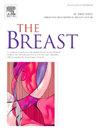Expert consensus on treating HR+/HER2- metastatic breast cancer based on real-world practice patterns observed in the RETRACT survey of US oncologists
IF 7.9
2区 医学
Q1 OBSTETRICS & GYNECOLOGY
引用次数: 0
Abstract
Hormone receptor-positive, HER2-negative metastatic breast cancer (HR+/HER2-mBC) is incurable, but recent progress has been made in developing new treatment options and the treatment landscape is rapidly shifting. There are published recommendations for treatment choices and sequencing to help guide oncologists in treating HR+/HER2-mBC, but little evidence has been published regarding real-world practice patterns. The REal-world TReatment patterns And Considerations of Toxicity in HR+/HER2-mBC (RETRACT) survey was designed to evaluate real-world practice patterns in the testing and management of this disease by US oncologists. The survey questions were answered via an online platform and the data were anonymized before analysis. A total of 150 oncologists practicing at academic and community centers completed the survey. The results showed this sample of oncologists largely followed recommended best practices for testing biomarkers, selecting treatments, and managing adverse events. However, several items did show substantial minorities of oncologists not in alignment with recommendations in areas including the definition and treatment of visceral crisis, ideal treatment for patients with endocrine resistance, the routine use of next-generation sequencing for biomarker testing, and the use of prophylactic measures for treatment-related adverse events in patients receiving alpelisib.
专家共识治疗HR+/HER2-转移性乳腺癌基于现实世界的实践模式观察美国肿瘤学家的撤回调查
激素受体阳性、her2阴性的转移性乳腺癌(HR+/HER2-mBC)是无法治愈的,但最近在开发新的治疗方案方面取得了进展,治疗前景正在迅速改变。已发表的关于治疗选择和测序的建议有助于指导肿瘤学家治疗HR+/HER2-mBC,但关于现实世界实践模式的证据很少。现实世界的治疗模式和对HR+/HER2-mBC毒性的考虑(撤回)调查旨在评估美国肿瘤学家在该疾病的检测和管理中的现实世界实践模式。调查问题是通过在线平台回答的,数据在分析前是匿名的。共有150名在学术和社区中心执业的肿瘤学家完成了这项调查。结果显示,这些肿瘤学家在测试生物标志物、选择治疗方法和管理不良事件方面基本上遵循了推荐的最佳做法。然而,有几个项目确实表明,在内脏危机的定义和治疗、内分泌抵抗患者的理想治疗、常规使用新一代测序进行生物标志物检测、以及在接受alpelisib的患者中使用与治疗相关的不良事件的预防措施等方面,肿瘤学家与建议不一致。
本文章由计算机程序翻译,如有差异,请以英文原文为准。
求助全文
约1分钟内获得全文
求助全文
来源期刊

Breast
医学-妇产科学
CiteScore
8.70
自引率
2.60%
发文量
165
审稿时长
59 days
期刊介绍:
The Breast is an international, multidisciplinary journal for researchers and clinicians, which focuses on translational and clinical research for the advancement of breast cancer prevention, diagnosis and treatment of all stages.
 求助内容:
求助内容: 应助结果提醒方式:
应助结果提醒方式:


